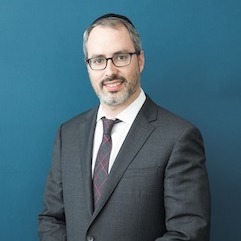What follows is based on Rabbi SR Hirsch. I wrote it in my own words, and have not done him full justice.
Why do we celebrate the Rosh Hashanah of the trees in the middle of the bleak, cold, lifeless winter? The Gemara explains – Since most of the rains have already fallen. (Rosh Hashanah 14). What does that mean?
Rabbi SR Hirsch in Collected Writings explains the significance of Tu B’Shvat in the following manner:
A rational person will say the tree bears fruit when the fruit actually appears on the tree. One who thinks a bit more deeply will postulate that the fruit really begins at the original budding. There must be a physical manifestation to show the budding of the fruit.
This is true in the world of men in general. Only deeds, actions, actual physical efforts are considered noteworthy.
The Torah operates differently; the origins of the actions are paramount. Rabbi Hirsch refers to the “invisible germination of righteousness and inquity”.
He explains that the Torah focuses on protecting and building this inner, invisible foundation from where all the actions come. All the laws of Purity, Issur and Heter and so on protect this core, particularly where the spiritual intersects with the physical and and the integrity of one’s purity is at stake.
This is also exemplified in the purity that was required in the camp of the Jewish Army, the cleanliness of speech that is Halachically necessary, the preparations needed to pray and to eat, and the entire approach to Jewish Law.
What follows then, is that all the rituals and laws are done not only as a way of serving Hashem, but more importantly to strengthen and solidify man, to ensure that the origins of all his deeds are pure and whole.
This is the message of Tu B’Shvat. We do not address the outer manifestations of Spring, rather the inner beginnings. The rains have begun passing, the sap is starting to rise in the trees, the inner core is strong and healthy – unaffected by what’s going on outside. This is the message to each and every one of us.


Rav Yitzchak Ginsburg in Gal Einai on Beshalach explains the gemara in Taanis 5 b
אמשול לך משל למה”ד לאדם שהיה הולך במדבר והיה רעב ועיף וצמא ומצא אילן שפירותיו מתוקין וצילו נאה ואמת המים עוברת תחתיו אכל מפירותיו ושתה ממימיו וישב בצילו וכשביקש לילך אמר אילן אילן במה אברכך אם אומר לך שיהו פירותיך מתוקין הרי פירותיך מתוקין שיהא צילך נאה הרי צילך נאה שתהא אמת המים עוברת תחתיך הרי אמת המים עוברת תחתיך אלא יהי רצון שכל נטיעות שנוטעין ממך יהיו כמותך
Why does it say שכל נטיעות שנוטעין ממך יהיו כמותך and not the seemingly proper word אילנות?
Rav Ginsburg explains that the main strength comes when they are נטיעות and that comes out as strong אילנות.
It is similar to one who learns a lot of torah in his youth and then moves on to other things, will aways be stronger in Torah even as he gets older due to the strong nurturing in his youth
Hi, Rabbi Tzvi Hirsch,
I’m Mrs. Cohen now, but formerly Mrs. Grunauer of Buffalo, then Cleveland, then Mattersdorf, and now Neve Yaakov.
Thanks for presenting this deep insight into Tu B’Shevat.